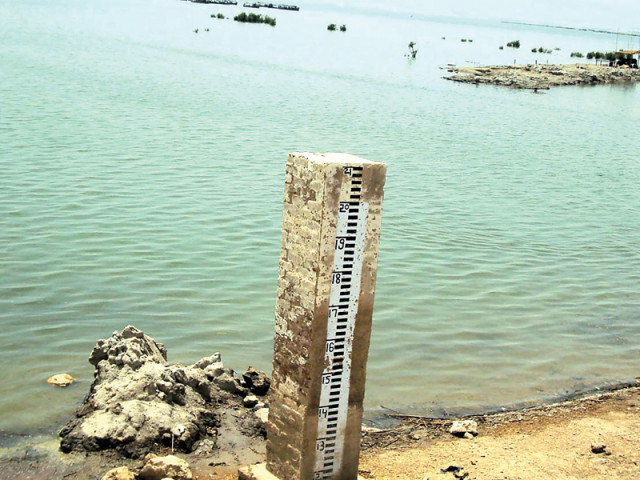Manchar Lake pollution: Fish stocks deplete, "
General secretary of Friends of Indus Forum says only 200 families now live along Manchar Lake.

Industrial and agricultural waste discharged into Manchar Lake has caused a drastic depletion of fish stocks and forced fishermen to relocate. PHOTO: FILE
This was observed by Nisar Panhwar, the general secretary of the Friends of Indus Forum. “Manchar Lake was once known for its crystal clear water and rich fish stocks. It also used to provide nesting and resting habitat for migratory birds. There were about 102 species of birds recorded, and, likewise, more than 200 species of fish reported at the largest freshwater source. Through Indus flyway we used to get thousands of migratory birds from Central Asia in winters,” he added.
Belonging to the fishermen community and observing the situation for about two decades, Panhwar said: “Only 200 families of fishermen still live along Manchar Lake because of the alarming situation.”

Once the largest fish trader at the lake, Mehar Ali said: “They have killed Mother Manchar. Contaminated water from drains has made the lake poisonous and we can do nothing.”
Ali has now migrated to a congested slum in Karachi and is planning to change his profession. He said his business was booming until 1976, after which drains started discharging poisonous agriculture waste into the lake.
“There was a time when each fisherman could catch up to 100 to 150 kilogrammes of fish every day, but now they can hardly catch 20 to 30 kilogram of edible fish,” he says.
Allah Bachayo, another fisherman, who originally hailed from Manchar Lake, said: “For decades, the lake was rich in fish sources, but when the water got polluted, fish could not survive. It is poisonous. Even, we cannot drink it.”
He too was forced to migrate from his home village of Bhubak to Karachi.
Bhubak is a boat village. “It was once a traditional city of fishermen. They lived on boats and caught fish day and night. Each boat had two stories with several rooms, a kitchen, a toilet and a basement,” he recalled.
He added that majority of the fish species had died due to pollution and contamination of the water in the lake. “No more migratory birds nest here due to change in the ecological system as well.”
Muhammad Yahya, a senior member of Sindh Environment Protection Agency, described that the problem is the Main Nara Valley drain, one of three sources that feed the lake, as it brings the most pollutants-both agricultural and industrial.
“About 31 small sources discharge their effluents into another Mir Narwah drain, so we can’t identify what the major source exactly is,” he said, adding that polluted water from upcountry, agriculture waste and domestic and industrial pollutants are the major sources of water contamination.
Published in The Express Tribune, July 5th, 2013.



















COMMENTS
Comments are moderated and generally will be posted if they are on-topic and not abusive.
For more information, please see our Comments FAQ